Weight loss is a common yet sensitive topic for many people. According to the World Health Organization, about 43% of adults around the world are overweight. So it’s no secret that many of us would benefit from losing a few pounds. But it’s not always as simple as cutting out dessert and hitting the gym a couple of times a week. Some of us need a little extra help, and that’s why Ozempic has exploded in popularity in recent years.
But we often only hear about how the medication has transformed people’s lives for the better. So today, we’re focusing on some of the downsides of taking Ozempic, particularly how it can impact a person’s relationships with friends and family. Individuals who have seen Ozempic use up close have been opening up on Reddit about how they’ve been affected, so you’ll find some of their brutally honest accounts down below.
Ozempic usage has grown exponentially in recent years

Image credits: freepik (not the actual photo)
But many people are now opening up about the darker sides of watching loved ones take the medication


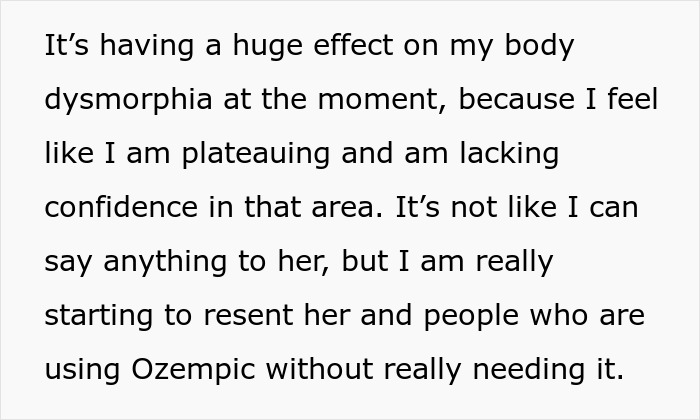
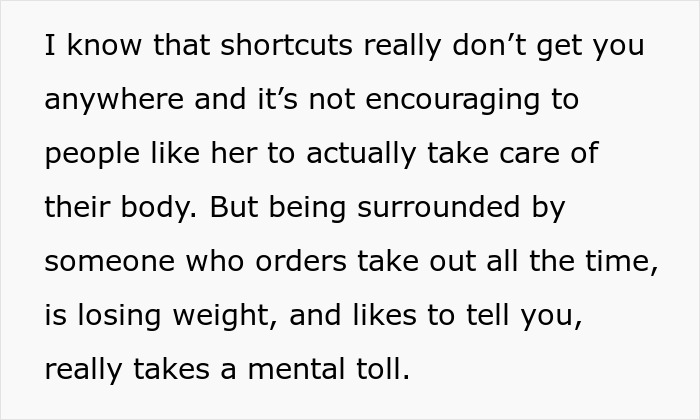
Image credits: giggly_otter

Image credits: freepik (not the actual photo)
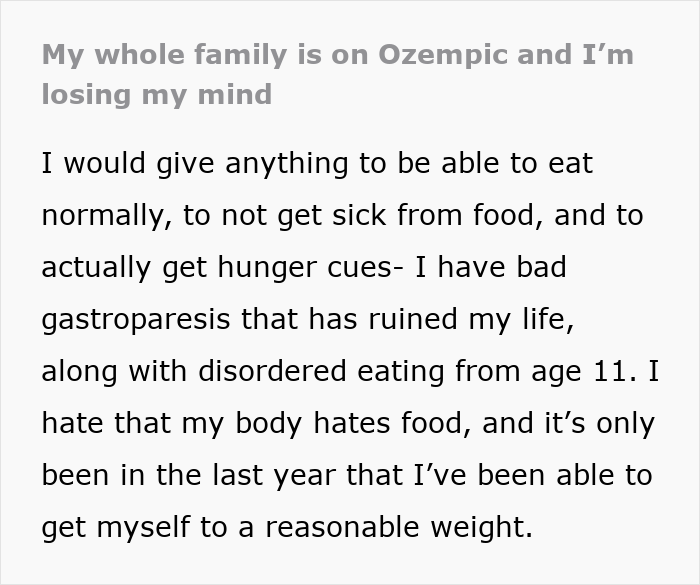


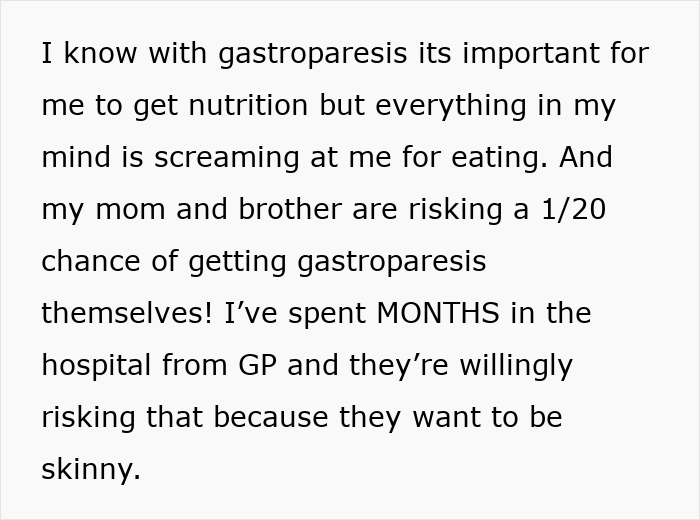

Image credits: grinninwheel
Ozempic has only been approved by the FDA to treat type 2 diabetes

Image credits: unsplash (not the actual photo)
Ozempic has made many headlines in recent years because of its prevalence in Hollywood, but it’s important to note that plenty of regular people are using the medication too. In fact, it’s really only intended to be prescribed to adults with type 2 diabetes, according to the US FDA.
UC Davis Health explains that Ozempic works by “mimicking a naturally occurring hormone” that essentially tells a person’s brain that they’re full. At the same time, the medication slows down a person’s digestion, similar to how bariatric surgery would. It’s often used to treat diabetes, improve blood sugar levels, lower cholesterol, and improve blood pressure.
But people quickly realized that a common side effect of taking the medication is weight loss, which certainly helped its popularity. After all, a whopping 55% of Americans want to lose weight, a 2024 survey from Gallup found.
But many face barriers in doing so, such as health and mobility issues, limited guidance from health professionals, financial limitations, lack of will power and less concern about their weight than when they were younger. So if a medication comes along that can make shedding weight much simpler and easier than making drastic lifestyle changes, it’s understandable for people to get on board.
However, it’s important to understand that, just like any other medication, Ozempic can come with side effects. Within warns that patients who don’t actually need this medication may experience adverse health effects, such as electrolyte disturbances, reduced muscle functioning, chronic gastrointestinal issues, colon malfunctioning, increased risk of infection and depression and anxiety.
Unfortunately, some people also misuse Ozempic to fuel their own disordered eating patterns, which can exacerbate mental health issues and be dangerous for their health. At the same time, the normalization of weight loss dr*gs can contribute to anti-fatness and body weight biases, which are already extremely prevalent in our culture and media.
The popularity and accessibility of this medication has contributed to a cultural fixation with thinness

Image credits: unsplash (not the actual photo)
As we’ve seen from the stories shared in this article, the effects that Ozempic can have on mental health can reach far beyond those who are actually taking the medication. Eating disorders are “contagious” in a way, as openly having an unhealthy relationship with food can start to impact the way others around you view their own plates and bodies.
There’s nothing inherently wrong with taking Ozempic, especially for patients who actually have type 2 diabetes. But by constantly talking about the desire to lose weight, become skinny and/or eat less, patients can quickly impact their loved ones’ relationships with food.
Ozempic has been glamorized in the media as a miracle medication, but many experts worry that this is causing a cultural shift towards an obsession with being skinny, with little concern about how that may impact a person’s health.
“Discussions surrounding weight loss drugs contribute to disordered eating by encouraging weight loss at all costs,” Ashley Moser, LMFT, CEDS, told Healthline. “It reinforces the message that all people should strive for thinness and be willing to do so with whatever means are available, even if there is a cost to their physical or mental health. Those in eating disorder recovery are especially vulnerable to these messages as they can normalize disordered behaviors in the pursuit of a smaller body.”
Considering the fact that at least 9% of the global population are struggling with an eating disorder, it would probably be wise to be more careful about how we address such a sensitive topic.
We would love to hear your thoughts on these stories in the comments below, pandas. Do you have any personal experience with using Ozempic? Feel free to weigh in, and then, you can find another Bored Panda article discussing similar issues right here.
Many readers shared similar stories of their own, warning about the negative impacts of Ozempic use



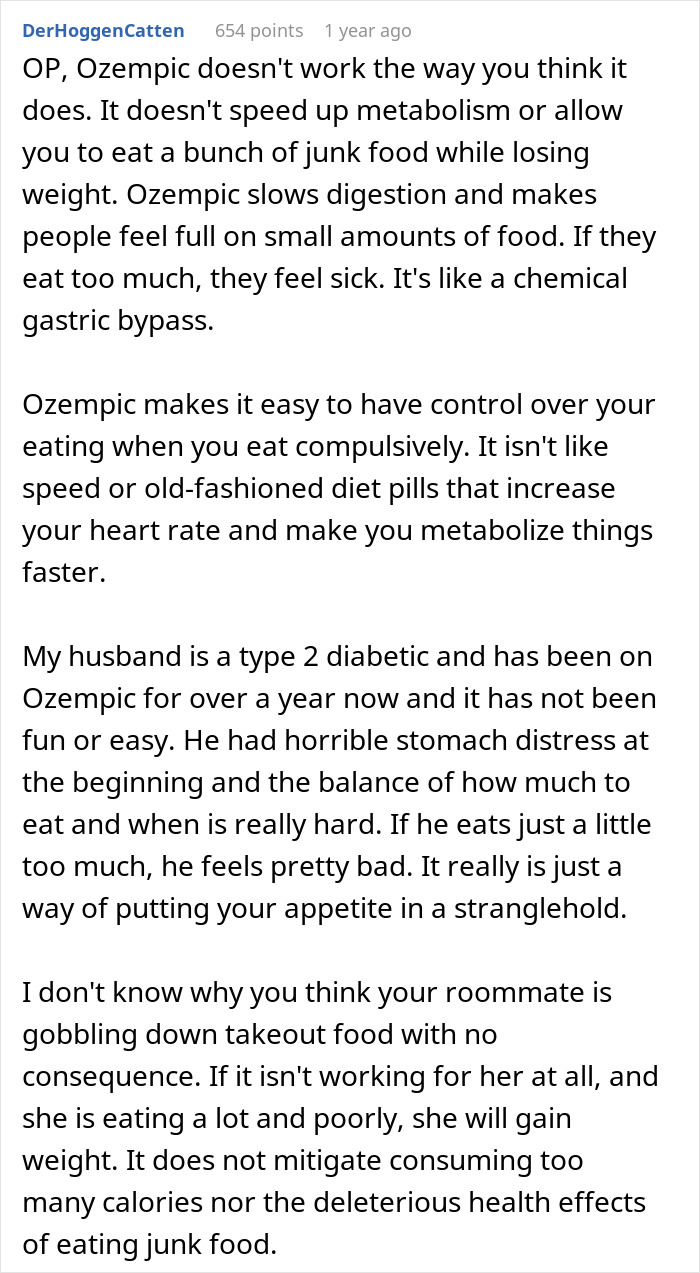




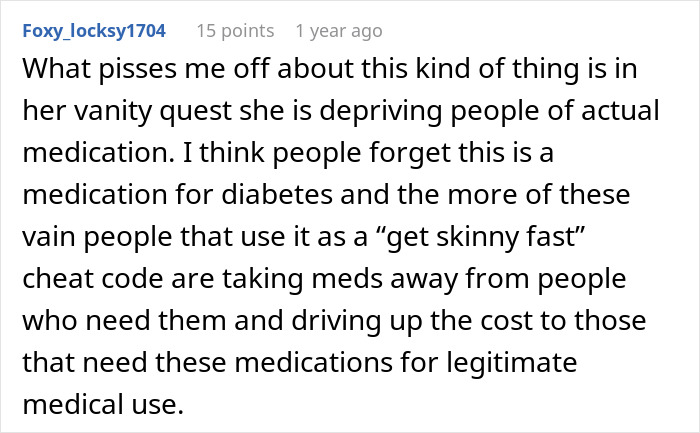


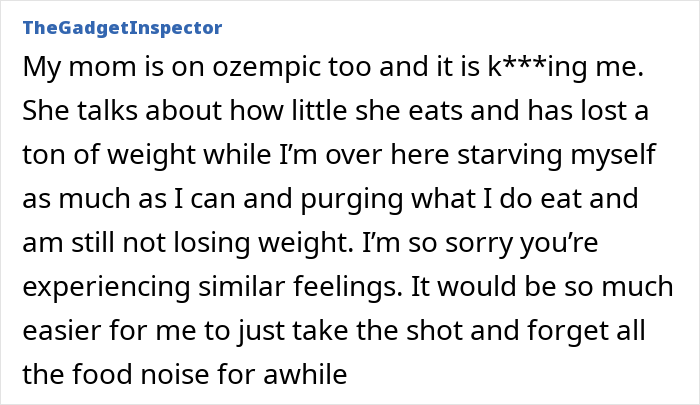
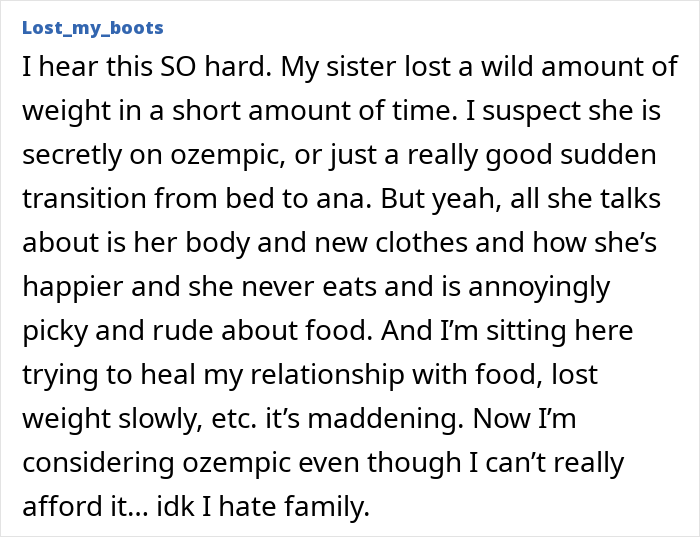

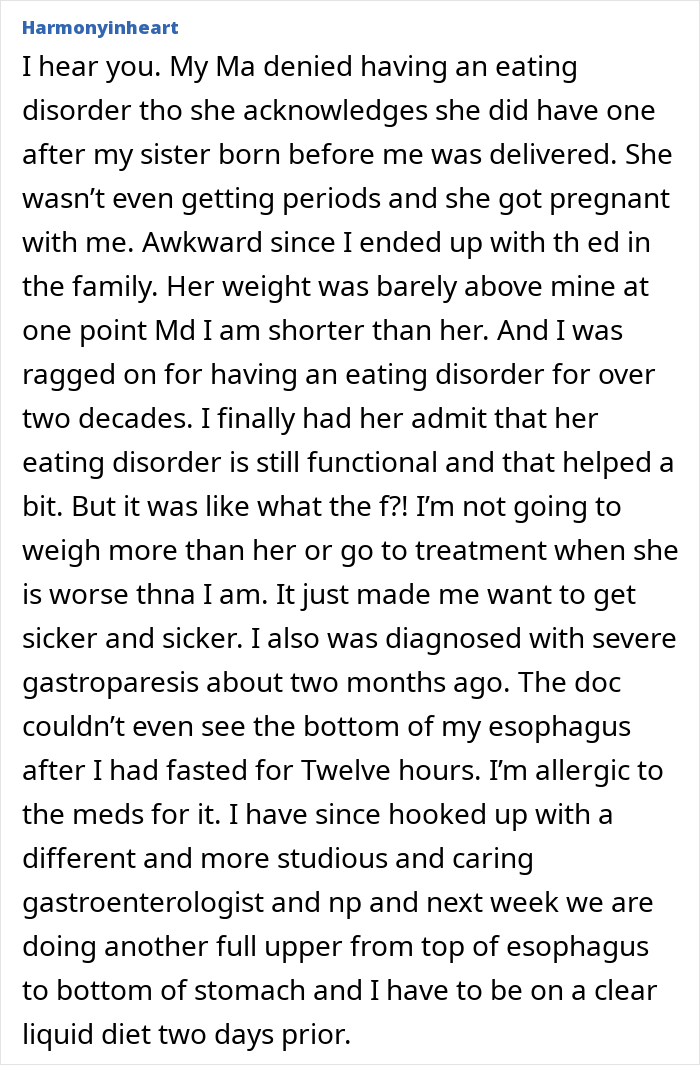
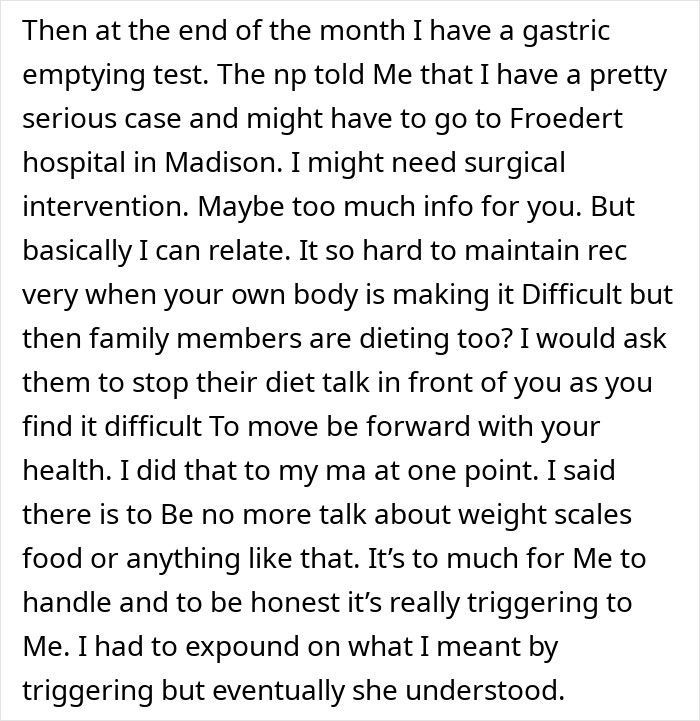

from Bored Panda https://ift.tt/eqAtp5M
via IFTTT source site : boredpanda